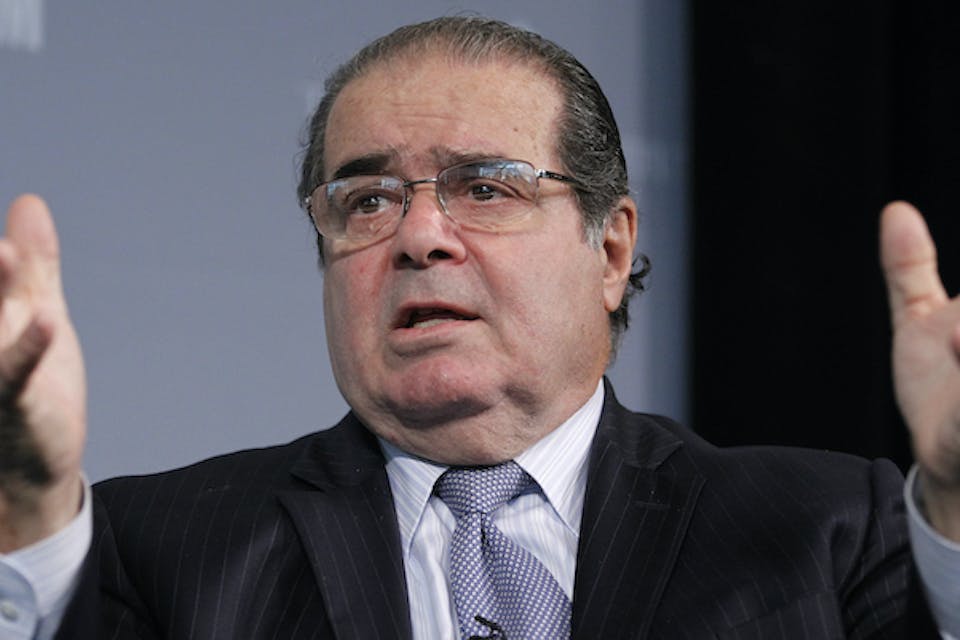
November 12, 2023
Scalia’s Prophecy
By Rabbi Meir SoloveichikA prescient speech by the late Supreme Court Justice should serve as a warning for our own time.
On May 8, 1997, Supreme Court Justice Antonin Scalia delivered what may have been the most important speech of his life. Strikingly, the address had nothing to do with jurisprudence; it made no mention of the Constitution or of the originalism that had marked his career. Delivered in the Capitol Rotunda, the justice’s remarks focused on the horrors of history, yet Scalia looked to not only the past but also the future. His words, now printed in the vital volume Scalia Speaks, have proved terrifyingly prescient.
The occasion of the address was a ceremony marking Holocaust Memorial Day. The justice reflected that, as honored as he was to participate, he found the invitation difficult to undertake as a non-Jew: “I am an outsider speaking to an ancient people about a tragedy of unimaginable proportions that is intensely personal to them.” Scalia further reflected, “I am not only not a Jew, I am a Christian,” and said he believed that the anti-Semitism in Christendom had “helped set the stage for the mad tragedy that the National Socialists produced.” He stressed, however, that for him, the ceremony of the day was personal: “When I was a young man in college, spending my junior year abroad, I saw Dachau. Later, in the year after I graduated from law school, I saw Auschwitz. I will of course never forget the impression they made upon me.”
These remarks were interesting enough, but the most important part of the speech was yet to come. Scalia stressed that it was not enough to remember the Holocaust. Rather, he said, one must mark the sort of society in which it occurred: “The one message I want to convey today is that you will have missed the most frightening aspect of it all, if you do not appreciate that it happened in one of the most educated, most progressive, most cultured countries in the world.” The Germany of the early-20th century, he noted, “was a world leader in most fields of art, science, and intellect.” Its universities were some of the most celebrated on earth. Yet this did not prevent Nazism from suffusing society; in fact, German education and Nazism went hand in hand.